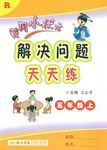题目内容
Jim usually goes to school by bike,________today he walked to school.
A.and B.but C.or D.so
练习册系列答案
 黄冈小状元解决问题天天练系列答案
黄冈小状元解决问题天天练系列答案 三点一测快乐周计划系列答案
三点一测快乐周计划系列答案
相关题目
题目内容
Jim usually goes to school by bike,________today he walked to school.
A.and B.but C.or D.so
 黄冈小状元解决问题天天练系列答案
黄冈小状元解决问题天天练系列答案 三点一测快乐周计划系列答案
三点一测快乐周计划系列答案